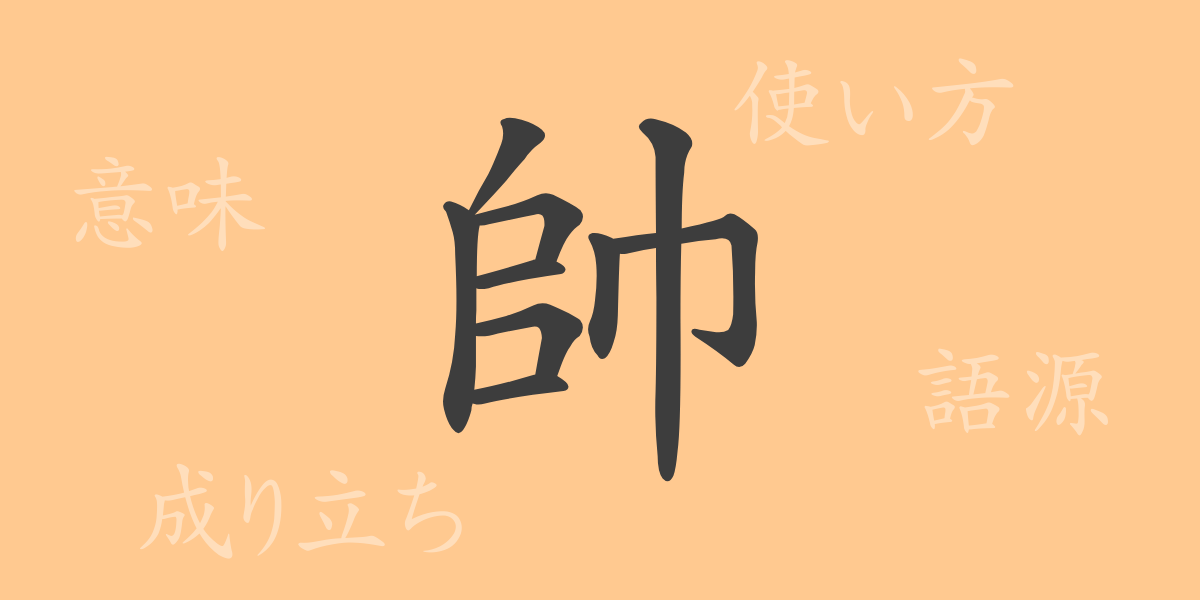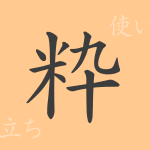The beauty of the Japanese language is reflected in its intricate kanji characters. One such character is ‘帥’ (スイ), which, though not frequently used in everyday conversations, holds a significant presence due to its depth of meaning. This article delves into the kanji ‘帥’, exploring its origins, meaning, usage, and associated phrases and proverbs, offering a deeper understanding of its role in Japanese culture.
Origins of 帥
The kanji ‘帥’ evolved from a term used in ancient China to denote a military commander. The original character depicted a person holding a flag, symbolizing the authority and leadership of one who leads an army. Over time, the character simplified to its present form. In Japan, it carries a similar connotation, representing leaders and commanders.
Meaning and Usage of 帥
‘帥’ primarily denotes leaders such as generals or commanders. With its military origins, the character is also metaphorically used to refer to someone leading a group or organization. In games like chess, ‘帥’ is used to describe the most crucial piece, underscoring its importance in strategic contexts.
Readings, Stroke Count, and Radical of 帥
‘帥’ is a character that reflects the complexity of the Japanese writing system:
- Readings: On’yomi ‘スイ’, no commonly used Kun’yomi
- Stroke Count: 9 strokes
- Radical: 巾 (はば・きんべん), representing ‘cloth’ or ‘fabric’
Phrases, Idioms, and Proverbs Using 帥
The character ‘帥’ is found in various phrases and idioms that relate to leadership and command:
- 大将 (たいしょう): Refers to the chief commander of an army.
- 司帥 (しさい): Denotes a military commander.
- 元帥 (げんすい): Used to describe a general of the highest rank, especially in a marshal’s position.
These terms illustrate the symbolic importance of ‘帥’ in expressions of leadership and authority.
Conclusion on 帥
The kanji ‘帥’, with its rich history and profound meanings, occupies a unique position in Japanese written language. Originating from a military background and symbolizing leadership, ‘帥’ continues to influence modern culture and language through various idioms and phrases. As a representation of leadership, or to indicate a significant position, ‘帥’ embodies the elegance and strength of Japanese script.

























